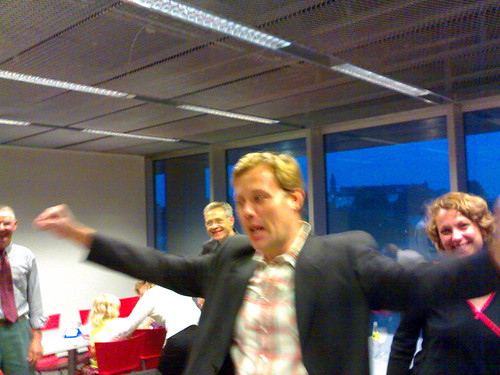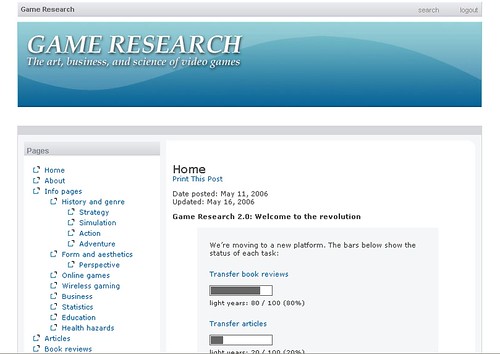Full papers, no abstracts this time. This is quite an interesting development as it will include fields in which only full papers count as worthy (the case for many computer scientists).
The announcement:
DiGRA 2007 First Circular
We, the DiGRA 2007 Local Organizing Committee, are happy to announce
that the third DiGRA (Digital Games Research Association)
international conference will be held in Tokyo, Japan in September
2007. Scholars of digital games from around the world are encouraged
to submit a paper and to participate in the conference. Held in the
world capital of videogames, this conference will be an event that no
game studies scholar can afford to miss. We are working hard for
DiGRA 2007 to be truly special.
The theme of this conference is “Situated Play.” Game play does not
take place in vacuum. For play to be possible, certain social,
cultural, economic, and technological conditions need to converge.
Digital games, therefore, require truly diverse approaches to
illuminate their extremely multi-faceted nature. The goal of this
conference is to shed more light on these various kinds of
situatedness of games. In particular, the conference aims to bridge
professionally and geographically diverse scholars and practitioners.
We therefore welcome panel proposals and papers that describe various
facets regarding the situatedness of digital games and attempt to
combine a range of approaches in innovative ways.
For our participants’ convenience, the dates of the conference will be
set close to the Tokyo Game Show so that participants can take
advantage of both events. The selection of papers will be based on
full papers instead of abstracts, and the deadline will be in February
2007. A second circular revealing more details about DiGRA 2007 will
be issued in late May or early July.
We hope to see you in Tokyo!
– DiGRA 2007 Local Organizing Committee
Akira Baba (Chair), Kiyoshi Shin, Akinori Nakamura, Kenji Ito


